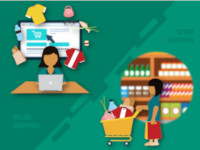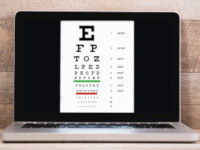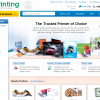- Details
- Written by Kelly Seal
- Hits: 3718
Online shopping continues to grow in popularity, posing a threat to the future of retail stores in what some are calling a “retail apocalypse.”
According to The Washington Post, as many as 75,000 retail stores are expected to close by 2026 due to an increasing number of shoppers switching to online purchasing. Investment firm UBS says that online sales currently make up 16 percent of all sales, but by 2026, they will make up one quarter of retail sales, a significant jump in a relatively short period of time.
The average household in the U.S. spent $5,200 online last year, a nearly fifty percent increase from just five years ago, according to The Post.
- Details
- Written by Kelly Seal
- Hits: 5951
The online meal kit industry has been declining the last couple of years, with companies struggling to meet revenue and subscription goals, but it seems that big grocery might be able to turn things around.
A new Nielson report shows that meal kits sold in grocery stores now account for 60 percent of all meal kit user growth, a boon for services like Blue Apron that have been struggling with declining subscriptions.
According to Neilson and published in trade magazine Grocery Dive, 14.3 million households purchased meal kits in the last half of 2018, up 3.8 million households from 2017, which shows that there is still interest in online purchasing. The grocery business however is booming, with in-store sales totaling $93 million in 2018.
- Details
- Written by Kelly Seal
- Hits: 3175
Advocates are concerned about the lack of privacy protections when it comes to DNA testing kits, so they are advocating for legislation to safeguard customer data.
DNA testing companies like Ancestry and 23andMe have become hugely popular in recent years. People have a growing interest in understanding their heritage as well as traits they share with family members, as well as learning about potential health issues that run in their families. Many are looking at gaining a more complete picture of who they are, and some have even found siblings and other family members they weren’t aware of in the process.
But one of the dangers of using DNA testing services is the potential breach of privacy – especially when it comes to something as personal as DNA, consumer advocates warn. For example, it was recently reported that Family Tree DNA gave the FBI access to its genetic database. Other DNA testing companies have allowed third parties to access this information too, because privacy policies are written to protect the company, not the consumers entrusting them with their DNA. Often consumers don’t realize they are giving permission for their genetic information to be shared because the wording is so vague, according to a report from The Washington Post.
- Details
- Written by Kelly Seal
- Hits: 9098
Would you take an online eye test to fill your next glasses prescription? Eyewear companies like Warby Parker and Opternative are betting on it, and offering online testing as a convenience for customers who prefer to skip the in-person appointments.
Hexa Research is projecting that the online eyewear industry in the U.S. will grow to $505.4 million by 2025, up from $338 million in 2017, according to PC Magazine. This makes online eye testing an attractive offering for companies and consumers alike.
But what is the reality of offering online eye tests, and can they really be trusted?
- Details
- Written by Kelly Seal
- Hits: 3170
Shares of Weight Watchers have plummeted 70 percent in advance of the company’s Q4 earnings report. Analysts expect the stock to continue to decline, which doesn’t bode well for the changes it has undergone in the last couple of years.
Brand ambassador Oprah Winfrey’s stock most definitely took a plunge according to reports, losing about $560 million.
JPMorgan Chase downgraded the stock first in January and then again in February after some analytics showed that WW daily active users had plunged a whopping thirty-five percent through February 15th. Subscriber numbers were disappointing as well. While third-quarter memberships rose 25 percent from the year before, they only hit 4.2 million, lower than the 4.5 million members the company reported in the second quarter.
- Details
- Written by Kelly Seal
- Hits: 2676
Weight Watchers (WW) announced that Kate Hudson, actress and co-founder of popular online clothing company Fabletics, will be its newest brand ambassador.
Hudson will be part of the company’s global marketing campaign “For Every Body” alongside Oprah Winfrey. The campaign is part of the company’s overall shift from a diet company to a “wellness” brand, focusing on what motivates people to want to lead healthier lives. This particular campaign will share the personal journeys of people with varying goals, whether it’s getting back into a fitness routine after a pregnancy or feeling more energetic, along with what approach works best for them. Hudson will share her experiences and encourage people to also share their stories for why they want to get healthy in 2019.
"Our members are the heart of our brand. It's inspiring to hear their real life stories and the reasons they want to get healthy – what they call #MyWhy," said Gail Tifford, Chief Brand Officer, WW in a press release. "What's interesting is that we've found many of these 'whys' are universal. Whether you want to get healthy for your children or for yourself, whether you want to feel confident in a wedding dress or feel empowered on the first day of a new job..."


















